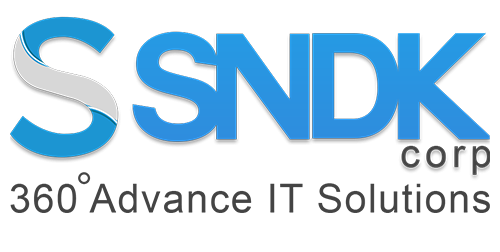Blog
Why should small business owners migrate to the cloud?
Cloud-based software (also known as cloud computing) allows businesses to access software and servers hosted by the software provider in a secure data center. These services are distributed over the Internet in real-time. One of the main reasons small companies migrate to cloud-based computing is to take advantage of big-business technology without having to integrate and handle it themselves. Until recently, your applications and servers were almost always held in your office, where you or your IT workers can manage them. The term “on-premises” refers to this form of deployment. “Cloud-based” computing has grown in popularity in recent years.
Top Five Reasons, Why Small Business Owners Need to Migrate to Cloud
Let’s explore the top five reasons for which business owners can benefit with cloud migration services.
Cost-cutting
One of the most apparent advantages of shifting daily operations to the cloud is that it can save small companies a lot of money. To begin with, cloud computing makes full use of hardware. Virtualization increases the value of physical server infrastructure, allowing organizations to do more for less. Cloud providers typically provide subscriptions to these same services, which are much more cost-efficient. Moving your business to the cloud would also save you money on hardware because the cloud service will have the majority of the hardware you’ll need. Since the hardware will be run and managed by your new cloud provider, you will reduce your reliance on these conventional information technology costs by shifting it to the cloud.
Increased collaborations
In the cloud, collaboration is easy. Employees can conveniently operate from the same master document thanks to the ability to store and access files through the cloud. Users can access, edit, and comment on documents using cloud collaboration tools like Google Drive, which improves workplace collaboration. Employers may also choose to restrict what workers have access to. Cloud-based technology allows many users to access the same data and resources at the same time and communicate in real-time, in addition to providing constant access to data and business tools. Your employees will be able to address each situation in real-time from almost anywhere thanks to the many cloud-based collaboration tools available. In comparison to a traditional IT setup, these solutions increase overall response time to your customers and enable you to close deals and resolve problems much faster.
Scalability
Another significant benefit of cloud technology over on-premises technology is its ability to scale rapidly and easily. If you tried to store all of your business data on servers at your place of business, for example, you’d have to buy new servers every time you needed to increase your storage capacity. However, with cloud storage, you can simply buy additional services as required. You can also cut back when required, which means less money is spent on services you don’t require. The good news is that cloud-based systems are now in place to not only meet your needs today but also to keep up with your development and assist you in getting things done tomorrow. If your business expands rapidly, you can easily add more space, apps, and users in a matter of minutes. If you need to cut back on resources or cut prices, all it takes is a quick phone call.
Provides security
From security device design and investment to safe service consumption Cloud-based applications, contrary to common opinion, have more secure security features. For starters, if you don’t have any servers or equipment on-site, there’s no chance of losing storage, tapes, or other types of data theft, and therefore no cost to maintaining the physical security of these devices. Since most cloud providers are multi-tenant, it is in the service provider’s best interest to deploy a robust security policy to protect their resources and apps, which then transforms into a direct benefit to the user, who gets to use an app that is protected according to best practices.
Up to date technology
From downtime for upgrades to automatic software updates, we’ve got you covered. Almost all Cloud services, barring a few exceptions, are subscription-based. The service provider ensures that the service is always running the most recent product release and that all security parameters are in place in the best interests of the vendor and the user. Typically, such improvements are carried out straightforwardly and do not affect end-users, except a brief maintenance window.
Conclusion
Small businesses can experience significant changes as a result of cloud technology. Many small-business owners, from startup companies in Tech Industry to industrial and small-town mom-and-pop shops, have seen these changes. With its low, marginal cost and benefits that might include improved flexibility, unlimited access, financial growth, and lower risk during a crisis, it’s hard to imagine why any business will not make the switch to the cloud. Small businesses may use cloud-based software to handle their IT needs more efficiently and cost-effectively.
